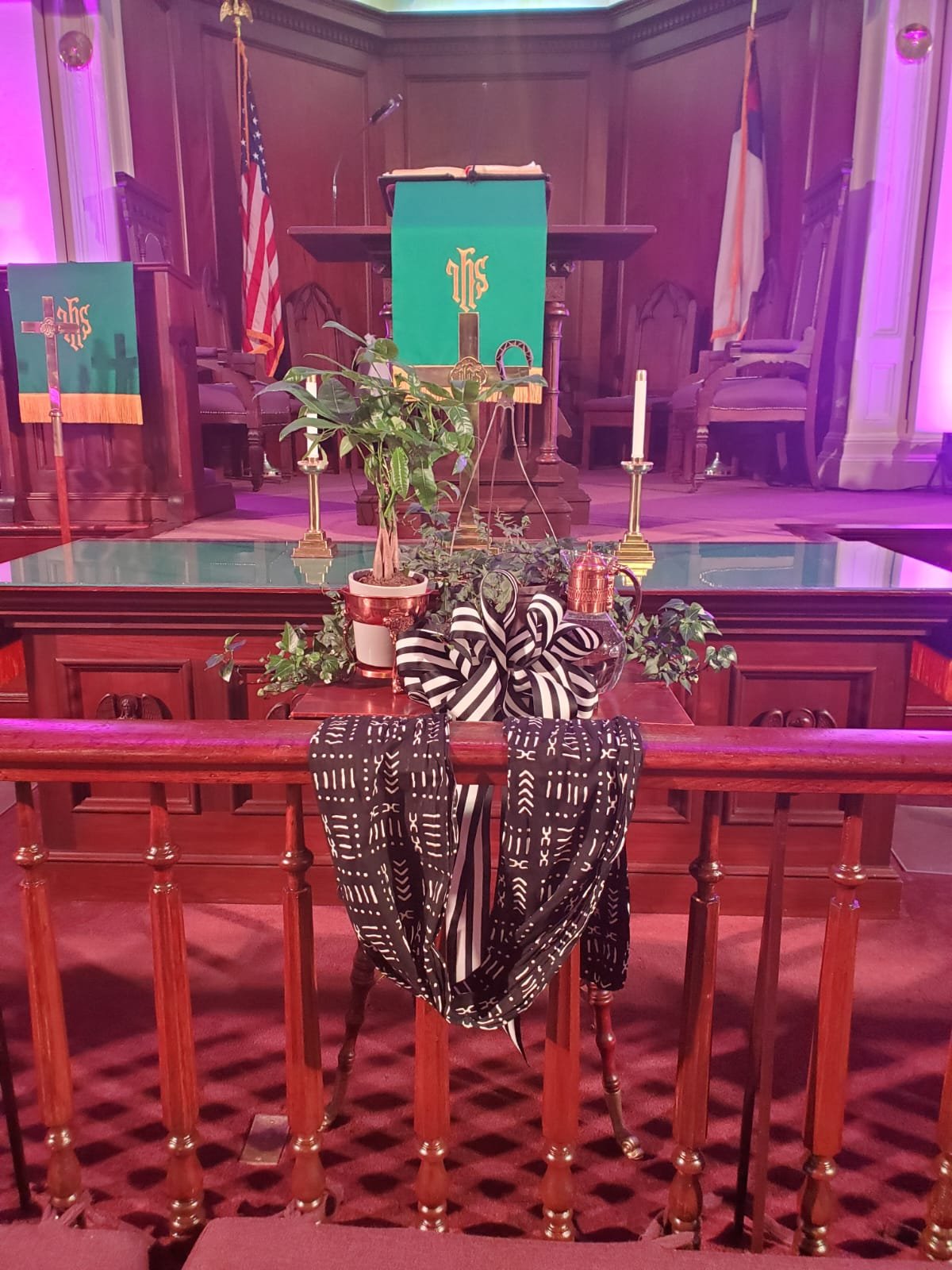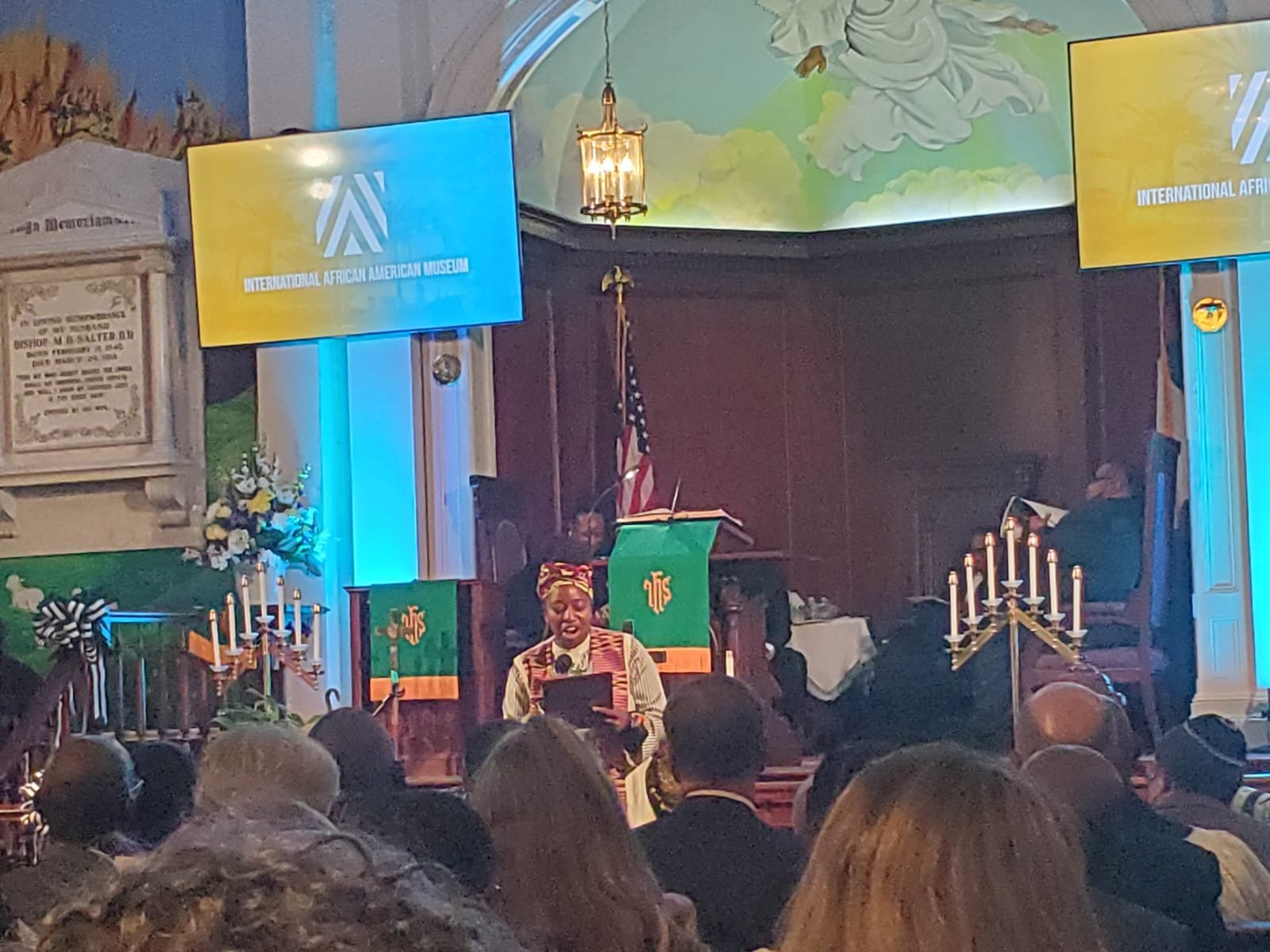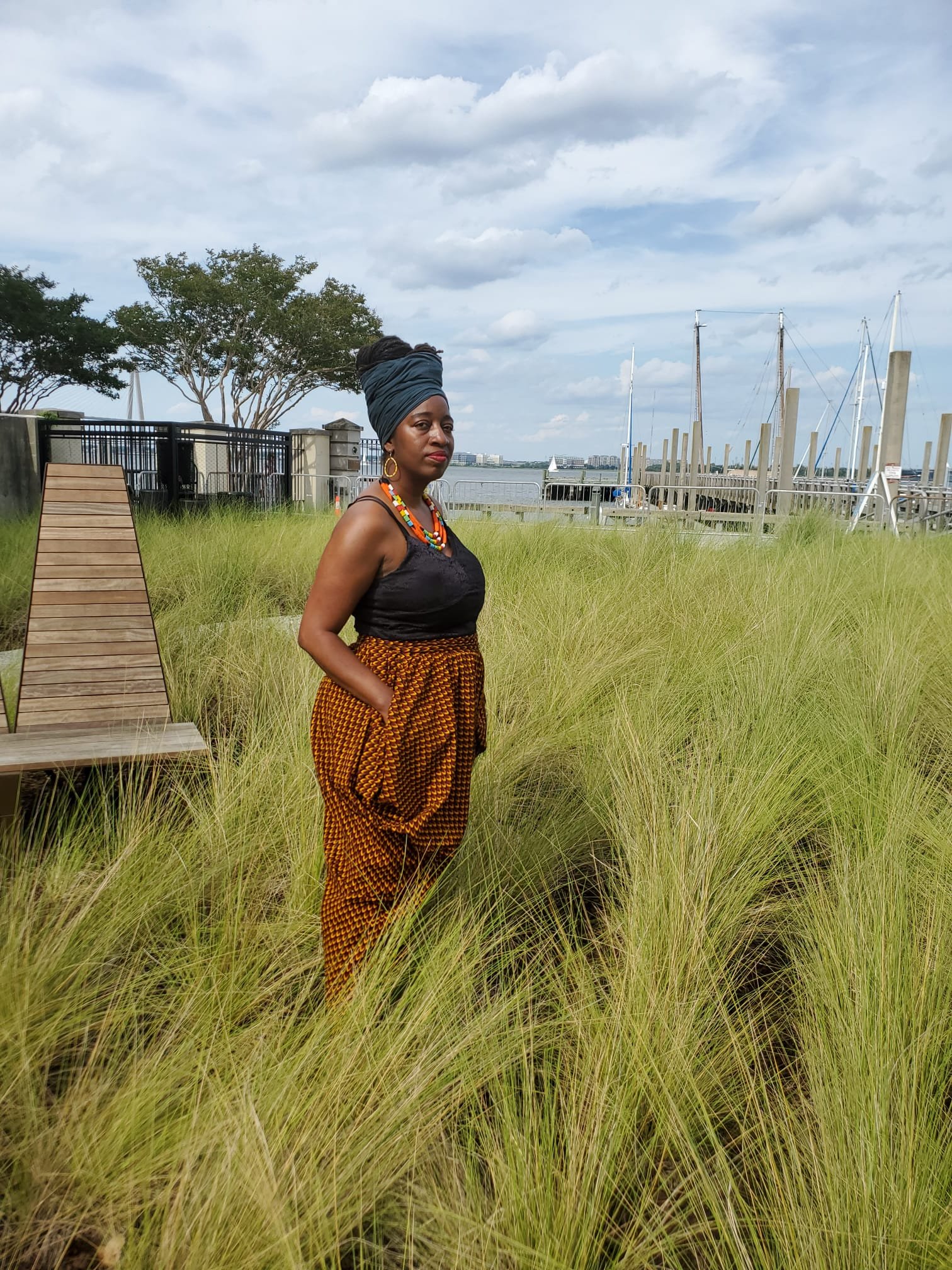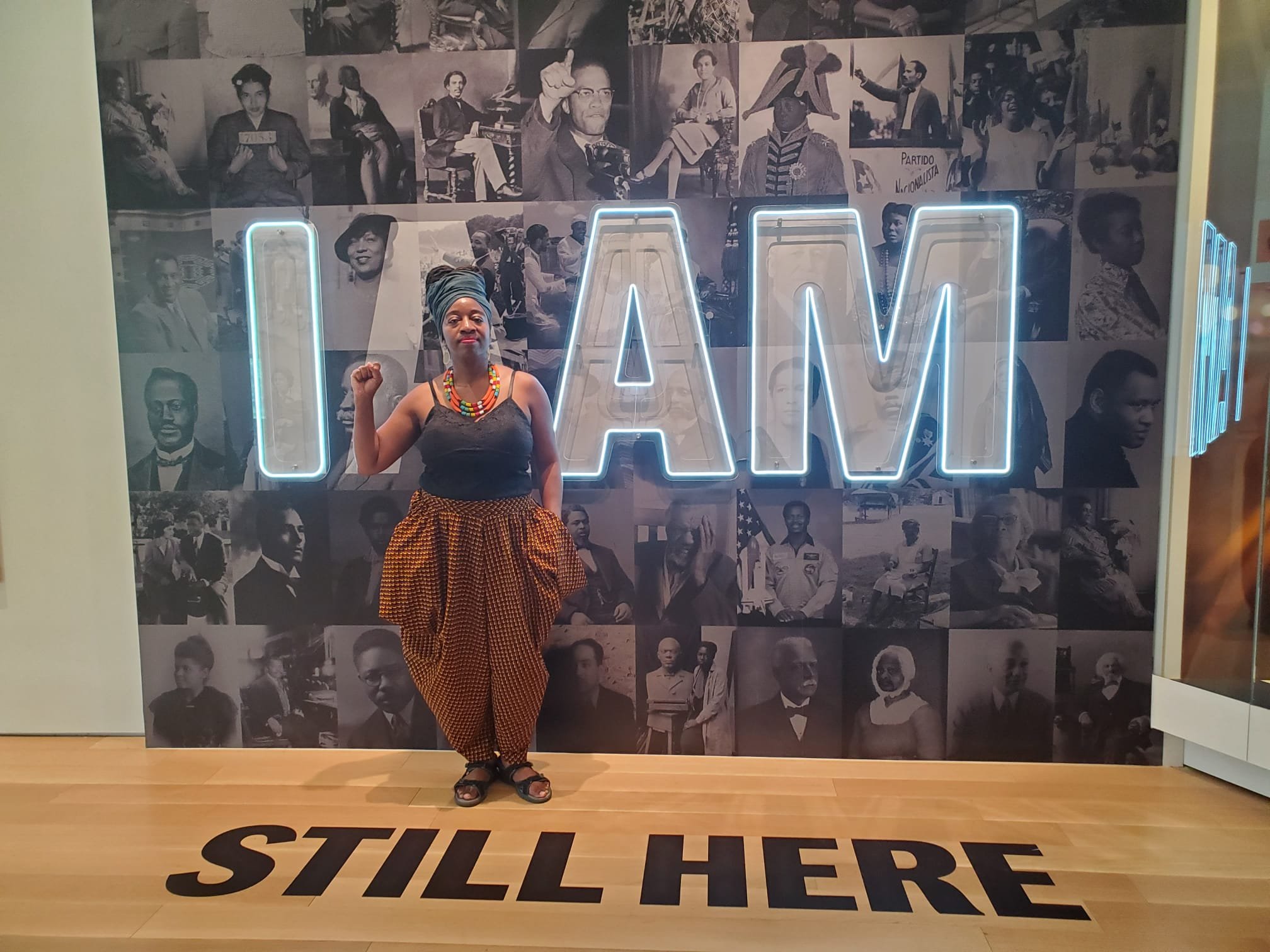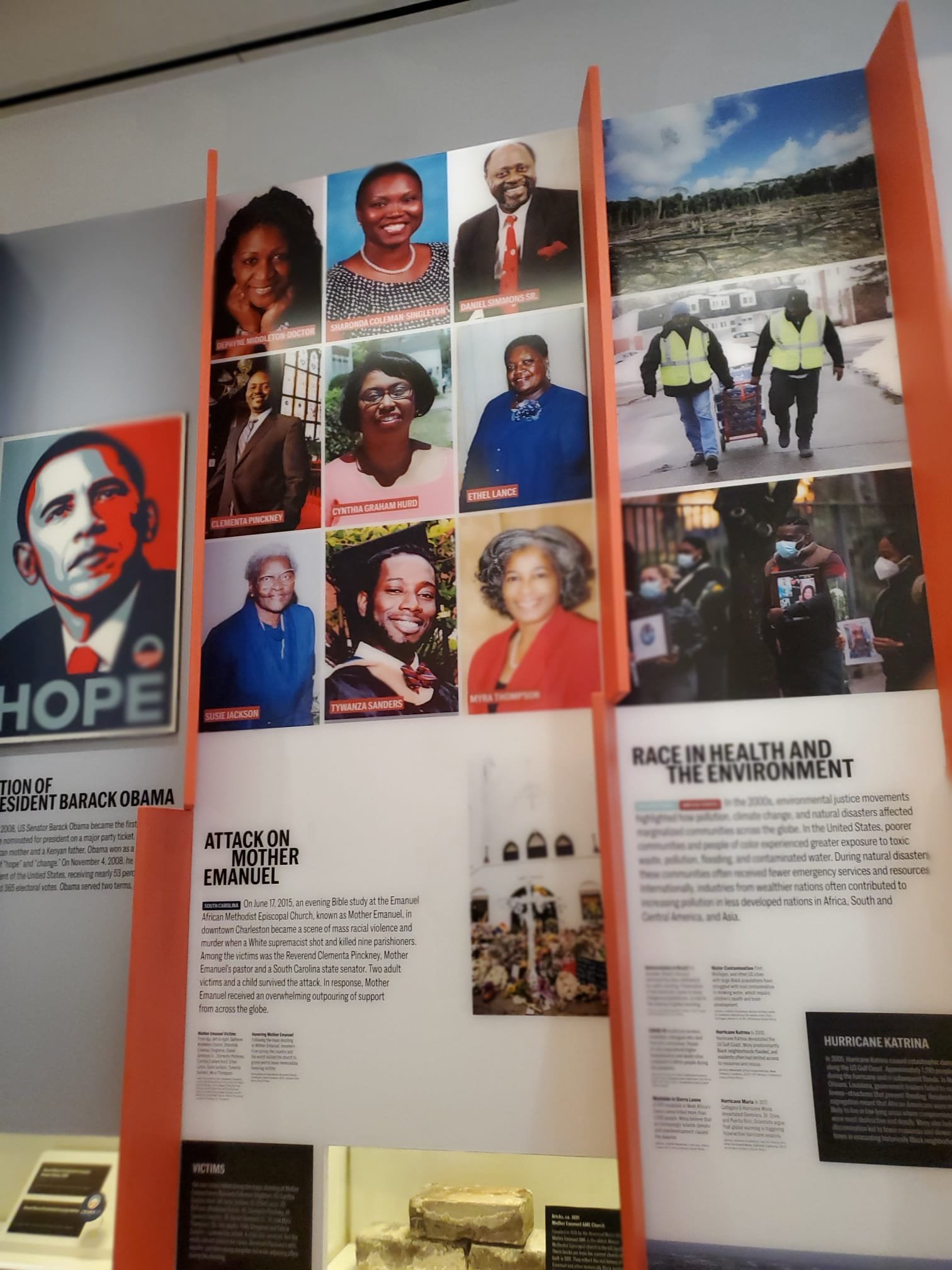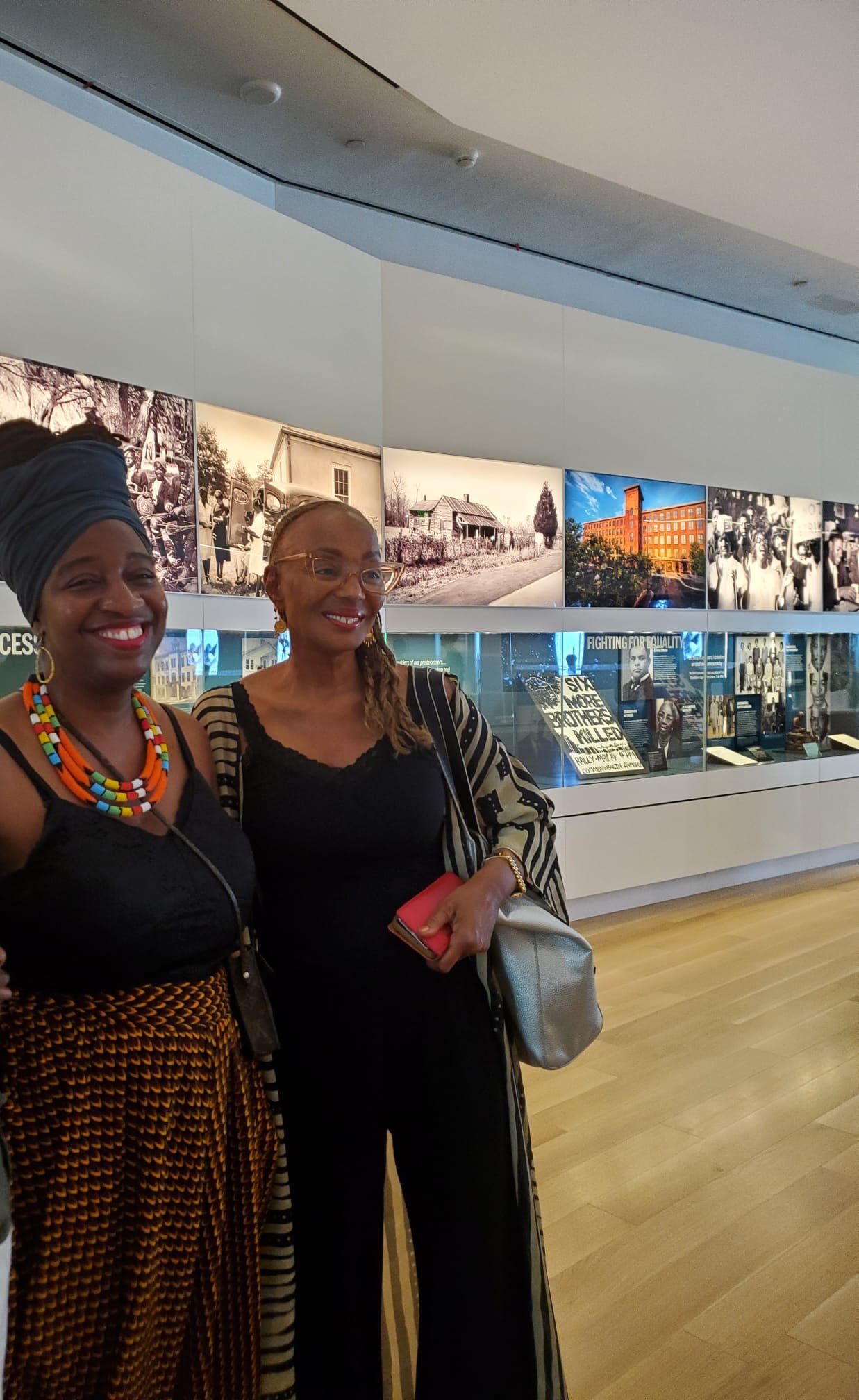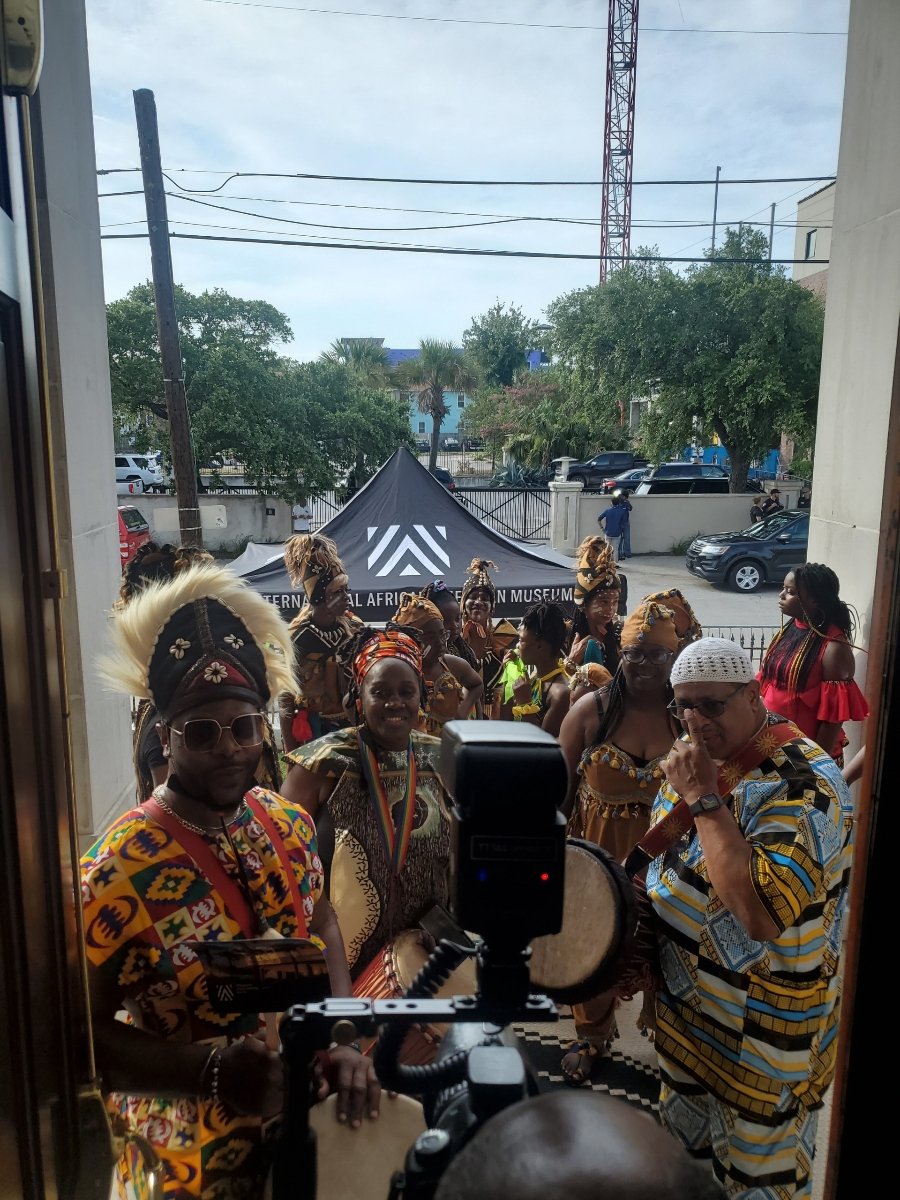CRS Celebrates International African American Museum
On the grand opening of the International African American Museum (IAAM) in Charleston, South Carolina, there was a palpable sense of historic gravity, for this was not merely an opening of a museum, but rather, a testament to the resilient journey of African Americans who were forced into enslavement in the United States of America and beyond. It also was a celebration of culture, creativity and faith. To mark the opening, Community Renewal Society participated in a multi-faith worship service at the historic Morris Brown African Methodist Episcopal Church on June 22, 2023.
The roster of speakers was filled with cultural leaders, storytellers, artists, historians, scholars, clergy and activists including Dr. Tonya Matthews, the museum’s President and CEO, Bishop Samuel Green of the AME 7th Episcopal District, Rev. DeMett Jenkins, Director of Education and Engagement for Faith-Based Communities, as well as CRS Executive Director, Rev. Dr. Waltrina Middleton. The Rev. Dr. Howard-John Wesley of Alfred Street Baptist Church in Alexandria, Virginia offered the Keynote Message of Liberation which aptly bridged the past with the present. Each message shared was a call to remember, reclaim and reimagine.
The African influenced libation ritual lead by Dr. Middleton invited call and response in what Dr. Middleton called "the spirit of Black church tradition.” Libation rituals invite ancestors to be present with their descendants with the pouring of water onto the earth or a plant. The names of ancestors are called out including critical historical figures such as Harriet Tubman, James Baldwin, Nelson Mandela and Toni Morrison. Names of more recent figures in the movements for racial justice and equity were also called including George Floyd, Michael Brown, Breonna Taylor, Walter Scott and Amadou Diallo.
"We pour cool water in the four seminal directions to welcome our ancestors. We seek their wisdom, and it is important to remember our past. I often mention the African Adinkra symbol ‘Sankofa’ - it literally means to go back and fetch your roots. Libation,” Dr. Middleton explains, “is a bridge that provides a continuum for history, the present and the unborn to be in sacred communion.”
Amongst the many moving installations in the museum is a tribute dedicated to the Emanuel AME Church members tragically killed in a racially motivated massacre in 2015 in the heart of Downtown Charleston, a sorrowful chapter of American history to which Dr. Middleton has a personal connection. Rev. Depayne Middleton, one of those who were killed, was her first cousin.
"During the libation I call out each person murdered in the basement of Emanuel AME church. When I say my cousin's name, I feel her presence and I pray she is honored. I call the name Denmark Vesey, who led an uprising in Charleston. I say their names because we must remember in order to heal, prevent repeating it and to discover true liberation," Dr. Middleton says.
Community Renewal Society is one of the inaugural donors to the museum. Last summer, Dr. Middleton joined over 200 participants on a sojourn there prior to the groundbreaking where conversations on Black liberation were explored. The sacred halls of IAAM vividly invite participants to remember, reflect and most importantly, to learn. There is an opportunity for museum goers to capture their own narratives on the digital library which is later archived. Dr. Middleton, moved by grandchildren interviewing their grandparents, reflects, "I saw four generations in the recording booth sharing their family history. I couldn't stop crying. It makes sense for CRS to be a part of this historic Kairos moment, bearing witness and receiving inspiration for our mission of love, equity and inclusion.”
Everyone can experience the complex and revolutionary narratives of African American history at IAAM. The museum is now open to the public by timed and ticketed scheduling. The opening has already sparked much needed dialogues, reminding us all that understanding our past is vital to creating a promising future.
